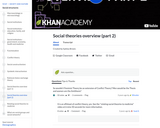
This video discusses Feminist Theory and Rational Exchange Theory.
- Subject:
- Social Science
- Sociology
- Material Type:
- Lesson
- Provider:
- Khan Academy
- Author:
- Sydney Brown
- Date Added:
- 12/27/2017

This video discusses Feminist Theory and Rational Exchange Theory.

Short Description:
This textbook provides an introduction to sociology. It takes a global perspective on sociology, one rooted in examples and developments of the 21st century. It highlights how sociology can help us understand the ever shifting and complex world around us.
Long Description:
This textbook provides an introduction to sociology. It takes a global perspective on sociology, one rooted in examples and developments of the 21st century. It highlights how sociology can help us understand the ever shifting and complex world around us.
Word Count: 62363
(Note: This resource's metadata has been created automatically as part of a bulk import process by reformatting and/or combining the information that the author initially provided. As a result, there may be errors in formatting.)

Mesa Community College Edition
Word Count: 110863
(Note: This resource's metadata has been created automatically as part of a bulk import process by reformatting and/or combining the information that the author initially provided. As a result, there may be errors in formatting.)

Sample instructions and assessment rubric for an essay on C. Wright Mills' concept of the sociological imagination. Students are challenged to apply the sociological imagination to an element from their own biography. I use this in my Introduction to Sociology course in Canada.

The Film & Theory Essay is great for assessing sociological theory application (a common SLO). Students can pick any film/tv show of their choice, and then need apply the three major sociological perspectives. They should define each theory and use examples from their film/tv show to support the application of each theory.
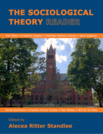
This reader brings together open-access excerpts of the writings of key figures in sociological theory. Excerpts from the works of Marx, Gilman, Addams, Durkheim, Cooley, Weber and DuBoise are included.

This is a 3-credit, 10-week course.
This course is intended to serve as an introduction to the emerging and evolving fields of the sociology and psychology of physical activity. This course considers the many specialized facets of these topics in a review fashion, and selected topics, owing to their significance and/or empirical basis, are covered in more depth. This course considers both historical and contemporary developments in exercise psychology and sociology, and examines the social and psychobiological predictors and health-related consequences of physical activity behaviors.

Sociology is shared under a CC BY-SA license and was authored, remixed, and/or curated by LibreTexts.

YouTube Channel is @SociologyVibes and includes 50 OER sociology explainer videos that are also categorized by playlists (similar to common Introduction to Sociology chapters). More videos will be uploaded regularly. Each YouTube video descriptor includes three reflection questions. Videos can supplement lectures, assignments, and student success resources. All videos have a CC-BY-NC license.

This lesson deals with the nature of deviance through documentaries done through the PBS series Frontline or the documentary series Real Stories.Students will need to review the nature of deviance and crime, apply key concepts and terms that deal with deviance and crime, and apply those concepts to a film clip that is school appropriate and exemplifies those concepts.Students will be the faciliators of a film study of that clip and will lead discussions about the aspects of the film clip and analysis.
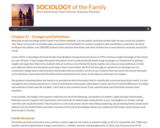
This book builds upon the 80 plus years of sociology of the family research and teaching that has made the discipline a leader in the field of family studies. In this book you will find examples of scientific methods and statistics used by sociologist, combined with the powerful and insightful sociological theories which open new worlds of discovery and understanding to you about the family. Sociologists study the family at a personal and larger social level. This is important to note because you experience both the personal and larger social levels of the family in your society every day--but until now, you might not have known that fact! The narrative in this textbook is intentionally personal. The material is intentionally selected in hopes that it will be useful in your personal and larger social life experiences. The book is also filled with answers to significant concerns and questions students often have about the family. Finally, this textbook is an excellent case study of the sociological analysis of the family in the United States. How we used the US statistics, trends, and historical facts used herein can be a useful example for you to do a similar analysis of your own country, state, province, county, or even city.
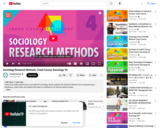
Today we’re talking about how we actually DO sociology. Nicole explains the research method: form a question and a hypothesis, collect data, and analyze that data to contribute to our theories about society.
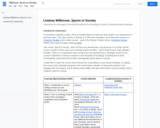
Course Description & Goals
Sports is a socially constructed phenomenon often mirroring a society’s structure, behavioral patterns, and culture, serving vital social functions and reproducing and resisting social injustices. In other words, sports represent a microcosm of society. In this course, we will use the topic of sports in society to investigate and apply sociological concepts to co-constructed individual and collective work.
We will also use the topic of sports to investigate questions fundamental to our human and social existence, including who we are and what we want to become--both individually and as a society--and the role of sports in that being and becoming. We will investigate these questions as we identify and investigate personally relevant topics, with the aim of practicing bringing our best selves to our work -- with curiosity, a humble sense of not knowing, a collective sense of mutuality and care, and a goal of, in the words of Adrienne Rich, claiming our own education.
Learning Objectives:
Learn about and apply sociological frameworks and theories to personally relevant topics of sports in society that provide opportunities for self-growth and self-awareness around questions of who we are and who we want to be
Learn how to conduct an independent research project using sociological concepts and/or methods
Learn about inequality through a sociological lens using sports as a focus
Develop skills for engaging in critical self-reflection, including the ability to hold divergent points of view and to integrate new frames of reference and new ways of being
Develop skills for engaging in collaborative and mutually beneficial learning
Develop an understanding of our personal and collective power to act with agency to create change at the individual and community levels
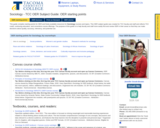
This guide compiles starting points for OER and freely available resources for Sociology courses and topics. This OER subject guide was created for TCC faculty and staff and reflects TCC credit, continuing education, and corrections course offerings. The purpose of this guide is to help faculty and staff more easily find and review OER in their areas so that they can make decisions about quality, accuracy, relevancy, and potential use.

The founders of sociology in the United States wanted to make a difference. A central aim of the sociologists of the Chicago school was to use sociological knowledge to achieve social reform. A related aim of sociologists like Jane Addams, W.E.B. DuBois, and Ida B. Wells-Barnett and others since was to use sociological knowledge to understand and alleviate gender, racial, and class inequality.
Steve Barkan’s Sociology: Understanding and Changing the Social World makes sociology relevant for today’s students by balancing traditional coverage with a fresh approach that takes them back to sociology’s American roots in the use of sociological knowledge for social reform.
Print on demand edition available here: https://www.uncpress.org/book/9781469659282/sociology/
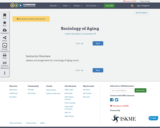
syllabus and assignments for a Sociology of Aging course

Sociology of Corruption Course
SOC 410
Course Description:
“Corruption” is a very strong and loud word. Media and press seem to be constantly yelling about
corruption scandals; economists, politicians, and world leaders, everyone is talking about the big “C”
word nowadays. But what does “Corruption” stand for? How is corruption connected to culture and
society? What is the relationship between corruption and inequality? Can corruption be good? This
course addresses these questions by providing a sociological understanding of corruption.
In this course, specific attention will be paid to studying the connection between macro and micro
processes; corruption and culture; corruption and society; corruption and inequality. The course will
start with teaching the basics: the role of social capital and social networks. Further in the course we
will analyze a variety of definitions, opinions, and theories applicable to corruption studies. We will
also explore the ways how political, economic, and sociological processes affect the formation and
development of corruption. These topics will be examined through the prism of social institutions,
cultural contexts, and informal exchange. With the help of comparative analysis, we will gain insight
into the corruption practices that characterize different countries.
Learning Objectives:
By the end of the course, you will:
● Get acquainted with the range of definitions, types, and classifications of corruption;
● Grasp major theories of corruption and sociological theories that help explain the construct of
corruption;
● Be able to interpret the role of culture and values in the definition of corruption;
● Be able to explain the role of “bad apples” and institutionalized corruption;
● Have learned how corruption affects different social institutions and lives of average citizens;
● Understand insights into the social intricacies of corruption in different countries;
● Feel comfortable to discuss and critique current media reports on corruption;
● Apply newly gained knowledge in the research project on the corruption case of your choice.

Studying sports as social phenomena helps us understand the ways that social class, gender, race and ethnicity, sexuality, and physical ability influence our everyday lives. Sports are also linked with the organization and dynamics of family life. Parents and educators see them as tools for teaching values to young people. Politicians often see them as vehicles for developing local and national identities, and corporations sponsor certain types of sports to market both products and ways of thinking about competition and consumption to people worldwide. Corporate executives now realize that sponsoring people’s pleasures (i.e., sporting events) produces support for their products. At the same time, most sports organizations seek corporate support to ensure their survival.

This seminar provides an introduction to scholarship in a growing research community: the sociologists and sociologically-inclined organization theorists who study issues that relate, at least in a broad sense, to the interdisciplinary field of inquiry that is known as “strategy” or “strategic management” research. The course is not designed to survey the field of strategy. Rather, the focus is on getting a closer understanding of the recent work by sociologists and sociologically-oriented organization theorists that investigates central questions in strategic management. In particular, we will be concerned with identifying and assessing sociological work that aims to shed light on: (a) relative firm performance; (b) the nature of competition and market interaction; (c) organizational capabilities; (d) the beginnings of industries and firms; (e) the diffusion or transfer of ideas and practices across firms; and (f) strategic change.
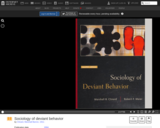
xviii, 592, R1-73, In1-19 p. : 24 cmIncludes bibliographical references (p. R1-73) and indexes